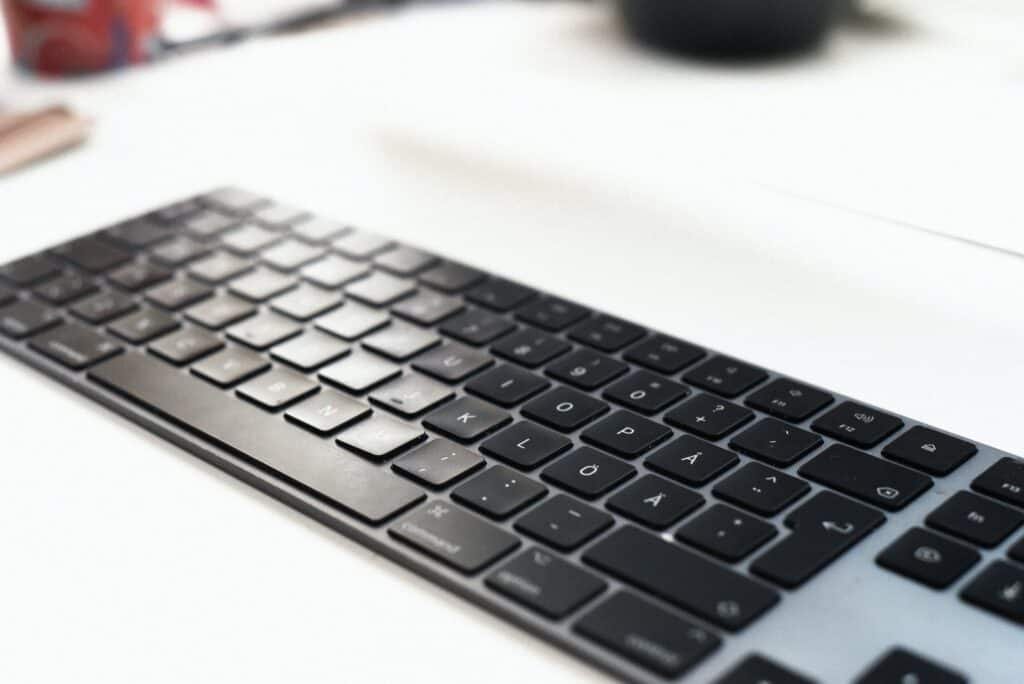What is listed below might seem like a lot of shortcuts – but believe me – they are not. Firstly, there are hundreds of different shortcuts for each computer program – but luckily only a handful are important to know. Secondly, you don’t need to memorise any of the shortcuts for the programs below if you don’t use them – simple! Most people will want to learn
- The Universal Computer Shortcuts
- WINKEY Shortcuts
- MS Word Shortcuts
- Email Shortcuts
And that’s it. So, if we add up the numbers, for these four areas, there are only 20 shortcuts to get familiar with and you probably know about 5 of them! So, that’s about 15 then. What are you waiting for?
To make life easier – especially if you’re a beginner, I have split the list into ESSENTIAL ones that YOU DEFINATELY OUGHT TO KNOW and NICE TO KNOW ones which are worth looking at once you know the basics. And for each program, I have only listed a handful of shortcuts. If you make yourself just do them for a week, I guarantee you will remember them in no time.
Universal Computer Shortcuts - everyone should know
ESSENTIAL
CTRL X undo last action
CTRL Y redo last action performed
CTRL F find an item
DOUBLE MOUSE CLICK selects a single word
TRIPLE MOUSE CLICK selects a paragraph
CTRL A select ALL (everything)
CTRL X cuts the selected item
CTRL C copies the selected item
CTRL V pastes the selected item
CTRL S save the document/page
NICE TO KNOW
HOME go to beginning of a page
ALT PRTSCN take a screenshot
CTRL P opens the print window
WINKEY shortcuts
ESSENTIAL
WINKEY D bring desktop to top
WINKEY TAB cycle through open programs
WINKEY L lock the computer
NICE TO KNOW
WINKEY U utility tool e.g. display settings
Additional Microsoft Word/PowerPoint/Excel Shortcuts
Note: the above basic general computer commands work with Microsoft Word and many other programs. They are generally UNIVERSAL.
ESSENTIAL
CTRL B bold selected section
CTRL I italicise selected section
CTRL U underline selected section
CTRL G find xxx and replace with yyy
CTRL J justify the text
NICE TO KNOW
CTRL L align the selected text to L
CTRL R align the selected text to R
CTRL M indent the paragraph
HOME go to beginning of current line
CTRL HOME go to beginning of doc
CTRL END go to end of doc
SPECIFICALLY FOR EXCEL
CTRL SHIFT $ change cells to currency
CTRL SHIFT % change cells to percentage
CTRL SHIFT # change cells to date format
CTRL SHIFT @ change cells to time format
SHIFT SPACE select entire row
CTRL SPACE select entire column
MICROSOFT WORD: SOFT RETURNS AND HARD RETURNS
Hard Return (or paragraph break) = RETURN or ENTER key
A hard return is simply pressing the [RETURN or ENTER] key. It forces a line break as well adding whatever paragraph space has been set in the document or web article. (There is a hard return at the end of this sentence).
Soft Return = SHIFT-RETURN (There is a soft return at the end of this Subhead)
A soft Return forces a line break without adding paragraph formatting and spacing. Simply use the [SHIFT] key at the same time as the [RETURN] key.
Images Shortcuts
Note: the above basic general computer commands work with image editing programs. They are generally UNIVERSAL. Remember, you can edit an image in Microsoft Word and Microsoft PowerPoint – not just specialist image editing programs.
SHIFT & MOUSE
In my mind, this is the most important key of all. When resizing an image or logo, holding the shift key down whilst dragging the mouse ensure that the image can be enlarge or reduced without distoring the proportions. In other words, it keeps the height proportionate to the width and vice versa. Squashing images and logos is not a good look and all to often seen.
Outlook Shortcuts
ESSENTIAL
CTRL N create a new email
CTRL R reply to an email
CTRL F forward an email
NICE TO KNOW
CTRL K go to send email address bar
CTRL SHIFT A new calendar appointment
CTRL SHIFT C create new contact
CTRL SHIFT I go to inbox
CTRL SHIFT O go to outbox
Elementor Shortcuts
ESSENTIAL
CTRL Z undo any change made
CTRL Y redo the undone action
CTRL P switch between panel and preview
SHIFT ALT J justify text in left text window
CTRL D duplicate section/column/widget
CTRL I go to navigator to move items
CTRL SHIFT H go to history panel
CTRL SHIFT L go to library of templates
CTRL SHIFT M desktop-tablet-mobile
CTRL SHIFT V paste style
DELETE delete section/column/widget
CTRL S save your page
Dragon Naturally Speaking Shortcuts
DRAGON HAS TWO MAIN MODES
Actually Dragon has 4 modes but most of us only need to know the DICTATION MODE for dictating and the COMMAND MODE for controlling the computer via issuing commands. All you have to say is “Switch to Dictation Mode” or “Switch to Command Mode”.
KEYBOARD SHORTCUTS
VOICE COMMANDS – for Dragon itself
There is only ONE that you need to know…
+ KEY turns microphone on or off
DRAGON ITSELF
- GO TO SLEEP or WAKE UP
- MICROPHONE OFF (use + key for ON)
- WHAT CAN I SAY
- DISPLAY SAMPLE COMMANDS
VOICE COMMANDS – for MS Word Processing
BASIC PUNCTUATION COMMANDS
- . FULLSTOP or PERIOD or DOT
- , COMMA, :COLON, ;SEMICOLON
- – HYPHEN, – DASH
- ! EXCLAMATION MARK
- ? QUESTION MARK
- + PLUS SIGN, – MINUS SIGN, ± PLUS OR MINUS SIGN, ÷ DIVISION SIGN, x MULTIPLICATION SIGN, % PERCENTAGE SIGHT
- ‘ ‘ OPEN/CLOSE SINGLE QUOTE
- ” “OPEN/CLOSE QUOTE
- ( ) OPEN BRACKET / CLOSE BRACKET
- [ ] LEFT/RIGHT SQUARE BRACKET
- < > LESS THAN/GREATER THAN SIGN
- / FORWARD SLASH or \ BACKSLASH
- & AMPERSAND (or AND SIGN)
- °C DEGREE SIGN
- £ POUND SIGN, $ DOLLAR SIGN, € EURO SIGN
- * ASTERISK
- @ AT SIGN
- ~ TILDE
- 🙂 SMILEY FACE, 🙁 FROWNY FACE, 😉 WINKY FACE
- (c) COPYRIGHT SIGN (R) REGISTERED SIGN
- … ELLIPSIS
- Add an extra space by saying “SPACEBAR”
BASIC FORMATTING COMMANDS
- SCRATCH THAT or DELETE THAT (i.e. scratch what I’ve just said)
- ALL CAPS ON /ALL CAPS OFF
- CORRECT [word]
- SELECT [xyz] or SELECT PREVIOUS PARAGRAPH
- UNSELECT THAT to undo
- CAPITALISE THAT (same for BOLD or UNDERLINE)
- BULLET THAT
- CUT THAT (or COPY THAT)
- PASTE IT HERE
- CLICK ENTER, CLICK RETURN or NEW LINE
- NEW PARAGRAPH
- INSERT BEFORE [xyz]
- UNDO THAT
- PRESS TAB KEY
- MOVE UP/DOWN [number] lines
- MOVE LEFT/RIGHT [number] words
- GO TO END OF LINE
- GO TO BOTTOM
- PAGE UP
ADVANCED WORD PROCESSING COMMANDS
- CUT FROM xxx TO yyy (same for COPY or DELETE)
- BOLD FROM xxx to yyy (same for ITALICISE or UNDERLINE)
EXAMPLES
- Where possible, say the name of the punctuation or symbol at the appropriate places in your dictation. For example: Open quote to be or not to be Close quote = “to be or not to be”. Or say: We’re going to the park comma then for ice cream period would you like to come question mark. Result: We’re going to the park, then for ice cream. Would you like to come? A third example: Say: Open quote Don’t find fault comma find a remedy period close quote. Result: “Don’t find fault, find a remedy.”
- Alternatively, you can do it afterwards…
- Put quotes around that – places quotes around the last phrase you dictated.
- Put brackets around to be or not to be = (to be or not to be).
- Select best to life. Bold selection = The best day of my life was when…
- Select best to life. Put single quotes around selection = The ‘best day of my life‘ was when…
- Put single quotes around best day of my life = The ‘best day of my life’ was when…
- Need more help, then click here.
VOICE COMMANDS – for controlling your computer
VOICE COMMANDS – for EMAILS
CONTROLLING THE COMPUTER
- CLICK START
- START [application name]
- OPEN [desktop icon name]
- SWITCH TO [application name]
- MINIMIZE WINDOW
- SEARCH COMPUTER FOR [xyz]
- FIND AN EMAIL ABOUT [xyz]
- SHUT DOWN COMPUTER
INTERNET COMMANDS
- SEARCH WEB/EBAY/AMAZON/MAPS/GOOGLE FOR xyz
- REFRESH PAGE
EMAIL/CALENDAR COMMANDS
- CHECK FOR NEW MAIL / SEND AND RECEIVE
- SEND EMAIL TO xyz
- CREATE NEW MESSAGE
- FORWARD MAIL
- REPLY TO ALL
- DELETE MAIL
- SUBJECT FIELD
- GO TO SUBJECT
- GO TO BODY FIELD
- ATTACH A FILE
- SEND MAIL
- VIEW BY SENDER
- VIEW SENT ITEMS FOLDER
- SHOW THE ADDRESS BOOK
- DISPLAY CONTACTS FOLDER
- SCHEDULE A MEETING with xyz
Forward this article on…



